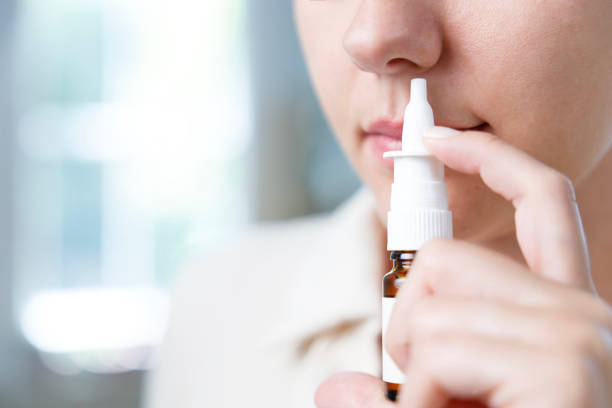USP Inhaler Freeze Thaw Stability Testing
The United States Pharmacopeia (USP) General Chapter <1079> provides guidance on the stability testing of inhalation and nasal products. This chapter is critical for ensuring that formulations remain stable under various environmental conditions, which directly impacts their efficacy and safety.
The freeze-thaw cycle simulates real-world storage and handling conditions, particularly in scenarios where medications may experience temperature fluctuations during transport or storage. This test assesses the product's ability to withstand such stresses without compromising its quality, potency, or shelf life. Compliance with this chapter is mandatory for inhalation products seeking approval from regulatory bodies like the FDA.
Our laboratory employs a rigorous approach to USP Inhaler Freeze Thaw Stability Testing, leveraging advanced equipment and standardized protocols. The testing process involves subjecting samples to multiple freeze-thaw cycles under controlled conditions, followed by thorough analysis of physical properties such as particle size distribution, dissolution rate, and drug content.
Our team adheres strictly to USP <1079>, ensuring that all testing aligns with the latest industry standards. This includes careful preparation of specimens according to the USP guidelines, precise temperature control during freezing and thawing phases, and meticulous documentation of each cycle’s duration and environmental parameters.
The primary goal is to identify any changes in product characteristics post-freeze-thaw cycles that could indicate instability or degradation. These tests help ensure that inhalation products continue to meet stringent quality requirements throughout their shelf life, thereby protecting patient safety and efficacy.
Our laboratory utilizes state-of-the-art equipment for this testing, including cryostations for precise temperature control and analytical instruments capable of detecting even minute changes in product integrity. This allows us to provide accurate results that are both reliable and reproducible.
By adhering meticulously to the USP <1079> guidelines, we ensure that our clients receive comprehensive data on their inhalation products' stability under extreme temperature conditions. This not only facilitates compliance with regulatory requirements but also enhances product quality assurance through robust testing protocols.
Scope and Methodology
The scope of USP Inhaler Freeze Thaw Stability Testing encompasses several key areas:
- Sample Preparation: Specimens are prepared according to specified guidelines in USP <1079>.
- Temperature Control: Samples undergo multiple freeze-thaw cycles at controlled temperatures.
- Analytical Techniques: Utilizes advanced analytical tools to assess product stability.
- Data Analysis: Comprehensive evaluation of test results against established criteria.
The methodology involves subjecting inhalation products to a series of freeze-thaw cycles, typically ranging from 0°C to 45°C. Each cycle consists of cooling the sample to low temperatures and then rapidly heating it back to room temperature. This process simulates potential real-world scenarios where the product might experience significant temperature fluctuations.
Once completed, the samples are analyzed for any observable changes in physical properties such as particle size distribution, color, odor, and texture. Additionally, chemical parameters like drug content, degradation products, and stability-indicating tests are conducted to evaluate overall product integrity.
The results of these analyses are meticulously recorded and compared against pre-established acceptance criteria. Any deviations from expected outcomes are thoroughly investigated to determine their potential impact on the product's quality and safety.
This comprehensive approach ensures that our clients receive accurate, reliable data regarding their inhalation products' stability under extreme temperature conditions. By adhering strictly to USP <1079>, we guarantee compliance with regulatory standards while enhancing overall product quality assurance.
Benefits
USP Inhaler Freeze Thaw Stability Testing offers numerous benefits for pharmaceutical manufacturers and healthcare providers:
- Regulatory Compliance: Ensures adherence to USP <1079> guidelines.
- Product Quality Assurance: Identifies potential issues early in the development process.
- Patient Safety: Guarantees that products remain stable and effective under various environmental conditions.
- Risk Mitigation: Minimizes the risk of product instability leading to recalls or withdrawals from the market.
- Enhanced Reputation: Demonstrates commitment to quality and safety, enhancing brand reputation among consumers and regulatory bodies.
- Data Integrity: Provides robust data for decision-making throughout the product lifecycle.
The freeze-thaw stability testing process is designed to identify any changes in product characteristics post-freeze-thaw cycles that could indicate instability or degradation. By addressing these issues early on, manufacturers can make informed decisions regarding formulation adjustments and packaging strategies, ultimately leading to improved product performance and reliability.
This testing also helps ensure consistency across different batches of the same product, which is crucial for maintaining uniform quality standards. Additionally, it provides valuable insights into how temperature variations may affect drug delivery systems within inhalation products.
Customer Impact and Satisfaction
Implementing USP Inhaler Freeze Thaw Stability Testing has a direct impact on customer satisfaction by ensuring that our clients' inhalation products meet the highest standards of quality, safety, and efficacy. Here’s how:
- Increased Confidence in Product Quality: Our rigorous testing process instills confidence among stakeholders about the reliability and consistency of their products.
- Faster Time to Market: Early identification of potential issues through stability testing allows for timely adjustments, expediting the product approval process.
- Better Patient Outcomes: Ensuring that inhalation products remain stable under various conditions translates directly into better patient outcomes and improved quality of life.
- Enhanced Brand Reputation: Compliance with USP <1079> and delivering accurate test results contribute significantly to building a strong brand reputation among consumers and regulatory bodies alike.
- Reduced Risk of Recalls: By identifying and addressing stability issues early on, we help reduce the risk of product recalls or withdrawals from the market, thereby protecting both manufacturers' interests and public health.
- Improved Decision-Making: Accurate data provides valuable insights into various aspects of the product lifecycle, enabling informed decision-making at every stage.
In summary, USP Inhaler Freeze Thaw Stability Testing plays a vital role in enhancing overall customer satisfaction by ensuring that inhalation products maintain their quality and safety standards even under challenging environmental conditions. This not only benefits manufacturers but also contributes positively to public health and well-being.





